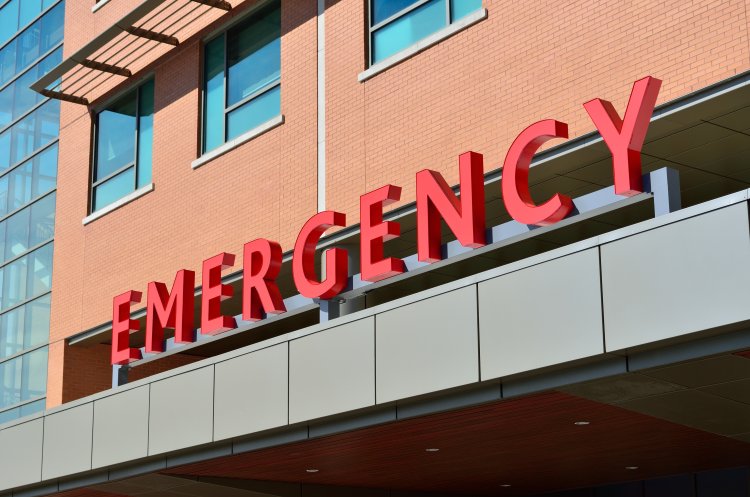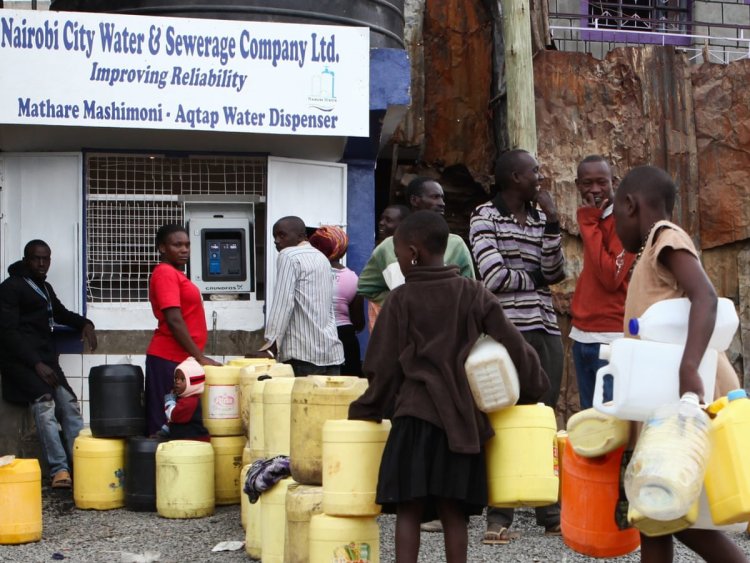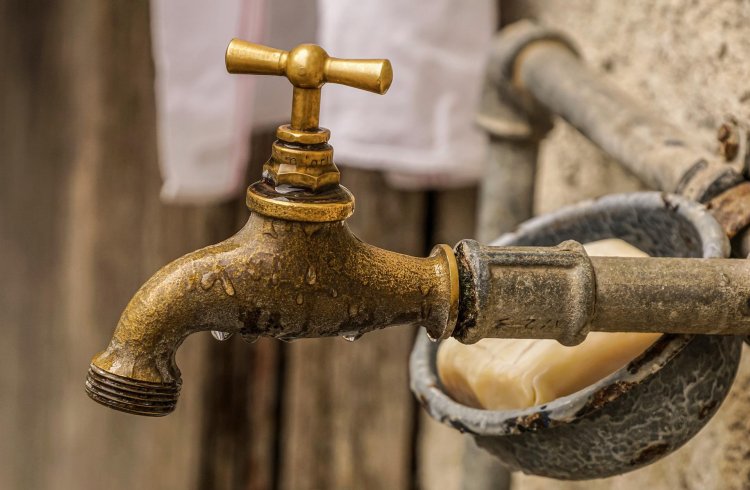Five Nairobi Hospitals Hit By 6-Hour Water Shortage
Explaining the reason for the temporary shutdown, NCWSC revealed that it detected a major leak at Kabete Water Treatment Works Reservoir.

The out-of-the-blue water shortage that tends to catch Nairobi residents unawares has affected every sector in the busy city and this time round, not even hospitals have been spared.
Nairobi City Water and Sewerage Company (NCWSC) on Thursday, August 31 began shutting down water supply to five city hospitals, meaning they will go without water for six hours.
The hospitals include MP Shah, Nairobi Hospital, Kenyatta Hospital, Mbagathi Hospital and Forces Memorial Hospital.
Explaining the reason for the temporary shutdown, NCWSC revealed that it detected a major leak at Kabete Water Treatment Works Reservoir.

Nairobi residents queue for water at a water dispenser by Nairobi City Water and Sewerage Company. /FILE
"We have a major leak at Kabete Water Treatment Works Reservoir that requires urgent repair works. Regretfully, we shall shut the water supply outlet from Kabete reservoir for six hours today August 31, 2023, from 10.00 a.m. to facilitate repairs," read the statement in part.
Water is an essential commodity in hospitals in their quest to offer everything from basic to urgent medical care to residents in any city worldwide.
From washing surgical tools and equipment to creating a soothing environment for patients to have hydrotherapy, water is essential to the effectiveness of the health industry.
However, moist environments and liquid solutions can create a favourable setting for the growth of many bacterial and protozoal microbes. Waterborne diseases can be spread through:
- Direct contact (for example, hydrotherapy)
- Ingestion of water (for example, drinking water)
- Indirect contact (for example, medical/dental tool or equipment)
- Inhalation of aerosols from water sources
- Aspiration of water
- Blood contact (for example, hemodialysis)
Due to the weakened immune systems of many patients, it is vital that water used in healthcare settings is not contaminated.
Meanwhile, hospitals are not the only areas in Nairobi affected by the temporary disruption of water supply. The shortage also affected the busy areas along Waiyaki Way are Chiromo Road, Westlands and Parklands.
Nairobi residents living in Riverside, Lavington, Kilimani area, Amboseli area and areas along Gitanga Road have also been affected.
Other areas include along Ngong Road as well as the whole of Kibera and Lang'ata Estates
"Whilst every effort will be made to restore the supply of water as soon as possible, we request all customers in the affected areas to use water sparingly during the period of interruption. Any inconvenience is highly regretted," added the statement.
On Friday, August 11, NCWSC announced a scheduled water rationing exercise for Kibra and Lang'ata areas for a period of seven days after being informed by challenges affecting water supply to the larger Lang'ata area due to illegal connections on its main water pipeline running along the Kabete-Lang'ata route.
NCWSC thus moved to reinforce the pipeline to secure it, a move that led to the disconnection of the illegal water connections.


 admin
admin 




